
William James Dixon was an American blues musician, vocalist, songwriter, arranger and record producer. He was proficient in playing both the upright bass and the guitar, and sang with a distinctive voice, but he is perhaps best known as one of the most prolific songwriters of his time. Next to Muddy Waters, Dixon is recognized as the most influential person in shaping the post–World War II sound of the Chicago blues.
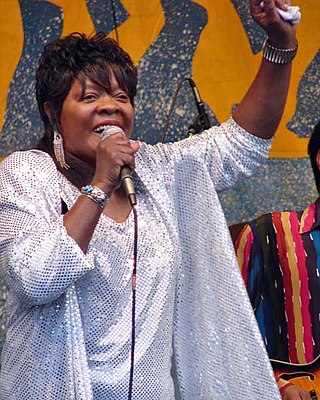
Koko Taylor was an American singer whose style encompassed Chicago blues, electric blues, rhythm and blues and soul blues. Sometimes called "The Queen of the Blues", she was known for her rough, powerful vocals. Over the course of her career, she was nominated for 11 Grammy Awards, winning 1985's Best Traditional Blues Album for her appearance on Blues Explosion.
Alligator Records is an American, Chicago-based independent blues record label founded by Bruce Iglauer in 1971. Iglauer was also one of the founders of the Living Blues magazine in Chicago in 1970.
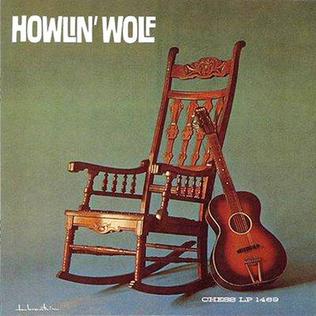
Howlin' Wolf is the second album from the Chicago blues singer/guitarist/harmonicist, Howlin' Wolf. It is a collection of twelve singles previously released by the Chess label from 1960 through 1962. Because of the illustration on its sleeve, the album is often called The Rockin' Chair Album, a nickname even added to the cover on some reissue pressings of the LP.

Bruce Iglauer is an American businessman and record producer who founded Alligator Records as an independent record label featuring blues music.
"Wang Dang Doodle" is a blues song written by Willie Dixon. Music critic Mike Rowe calls it a party song in an urban style with its massive, rolling, exciting beat. It was first recorded by Howlin' Wolf in 1960 and released by Chess Records in 1961. In 1965, Dixon and Leonard Chess persuaded Koko Taylor to record it for Checker Records, a Chess subsidiary. Taylor's rendition quickly became a hit, reaching number thirteen on the Billboard R&B chart and number 58 on the pop chart. "Wang Dang Doodle" became a blues standard and has been recorded by various artists. Taylor's version was added to the United States National Recording Registry in 2023.

"Hide Away" or "Hideaway" is a blues guitar instrumental that has become "a standard for countless blues and rock musicians performing today". First recorded in 1960 by Freddie King, the song became a hit on the record charts. It has been interpreted and recorded by numerous blues and other musicians and has been recognized by the Rock and Roll Hall of Fame and the Grammy Hall of Fame.

Billy Branch is an American blues harmonica player and singer of Chicago blues. Branch is a three-time Grammy nominee, a retired two-term governor of the Chicago Grammy Chapter, an Emmy Award winner, and a winner of the Addy Award. In addition, he has received numerous humanitarian and music awards.
Spivey Records was a specialist blues record label founded by blues singer Victoria Spivey and jazz historian Len Kunstadt in 1961. Spivey Records released a series of blues and jazz albums between 1961 and 1985.
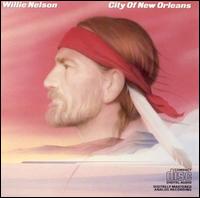
City of New Orleans is a studio album by the American musician Willie Nelson, released by Columbia Records in 1984. The title track was written and originally recorded by Steve Goodman; his version was released in 1971. The next year, Arlo Guthrie became the first to have a hit with the song. Nelson's version topped the U.S. country singles chart. Other covers on the album include "Please Come to Boston" and "Wind Beneath My Wings".

Zora Young is an American blues singer. She is distantly related to Howlin' Wolf.

Ruthie Cecelia Foster is an American singer-songwriter of blues and folk music. She mixes a wide palette of American song forms, from gospel and blues to jazz, folk and soul. She has often been compared to Bonnie Raitt and Aretha Franklin.

From the Heart of a Woman is a blues album by Koko Taylor, released in 1981 by Alligator Records.
Johnny B. Moore is an American Chicago blues and electric blues guitarist, singer and songwriter. He was a member of Koko Taylor's backing band in the mid-1970s. He has recorded nine solo albums since 1987. Moore's music retains a link to the earlier Chicago blues of Jimmy Reed and Muddy Waters, who also travelled to Chicago from the Mississippi Delta.
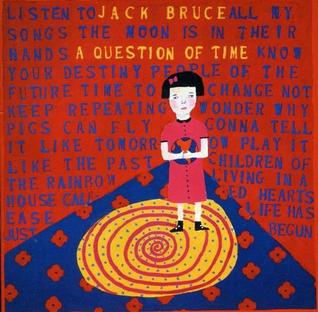
A Question of Time is a studio album by the Scottish musician Jack Bruce, released on 3 October 1989 by Epic Records. It was his first album for a major label in nearly a decade. He supported it with a North American tour.

Hidden Charms is a blues album by Willie Dixon, released in 1988 on Bug/Capitol Records. It won a 1989 Grammy Award.

Alex Dixon is an American blues musician, songwriter, producer, label owner and industry executive who is the grandson of Willie Dixon, one of the most important figures in the history of American music.

Mighty Earthquake and Hurricane is an album by the American blues musician Willie Dixon, released in 1984.

Used Guitars is an album by the American musician Marti Jones, released in 1988. Jones supported the album by playing shows that included many of the album's guest musicians. The album was a commercial disappointment, and A&M Records dropped Jones shortly after its release.
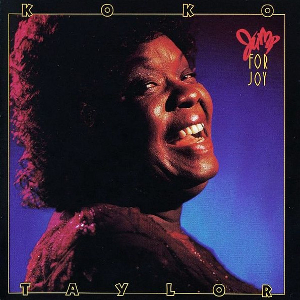
Jump for Joy is an album by the American musician Koko Taylor, released in 1990. Its release corresponded with Taylor's appearance in David Lynch's Wild at Heart. Taylor supported the album with a North American tour.
















